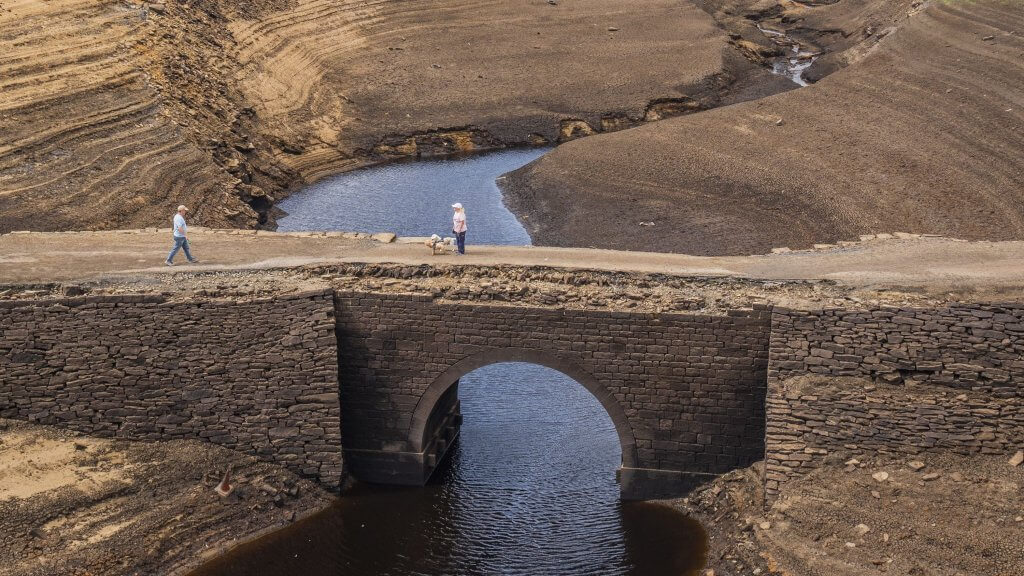
A comprehensive restructuring of the UK’s water regulation system has been proposed by a government-commissioned review, which recommends the replacement of existing agencies with a single regulator for England and a separate body for Wales.
The final report from the Independent Water Commission, led by Sir Jon Cunliffe, former deputy governor of the Bank of England, outlines 88 recommendations intended to address long-standing concerns over environmental performance, corporate governance and infrastructure investment in the water sector. The report represents the most extensive review since privatisation and arrives amid mounting public discontent over pollution, rising bills and executive remuneration.
At the centre of the report is a call to simplify and consolidate the regulatory framework, which Sir Jon’s team describes as fragmented and duplicative. In England, the proposal would involve the abolition of Ofwat and the Drinking Water Inspectorate, as well as the removal of certain responsibilities currently held by the Environment Agency and Natural England. These functions would be consolidated into a new integrated regulator with oversight across environmental, economic and consumer protection.
In Wales, the economic functions of Ofwat would be absorbed by Natural Resources Wales to streamline operations and improve coordination.
The commission also recommends the establishment of nine regional water authorities, with eight in England and one in Wales, to align investment and planning more closely with local needs. These authorities would assume many responsibilities currently held by central regulators, allowing for more responsive and region-specific infrastructure planning.
The report is highly critical of the current regime’s ability to respond to public concerns. Water companies have come under sustained scrutiny for allowing infrastructure to deteriorate while continuing to issue dividends and bonuses. Oversight, according to the commission, has failed to keep pace with evolving risks and performance expectations.
Sir Jon warned that while regulatory reform is essential, it will not shield consumers from rising costs. He forecast a 30 per cent increase in water bills over the next five years, citing structural investment requirements and the growing cost of wastewater treatment.
Speaking to Times Radio, Sir Jon said the existing regulatory bodies have failed to collaborate effectively, and that successive governments have not offered clear or consistent strategic direction. He stressed the need for improved performance from water companies, backed by sufficient capital investment and tighter scrutiny of ownership structures.
The report recommends expanding the role of the Consumer Council for Water into a statutory ombudsman to strengthen redress for customers and resolve complaints more effectively. It also calls for a major overhaul of environmental regulation, advocating greater use of digital monitoring and third-party verification in tracking wastewater discharges.
Governance reform features prominently, with proposals for enhanced regulatory powers to vet changes in company ownership, the introduction of minimum capital requirements, and a more supervisory model of economic regulation that would allow for earlier interventions.
Environment Secretary Steve Reed is expected to endorse the report’s conclusions in a speech later on Monday. He is widely expected to announce plans to abolish Ofwat and support the creation of a new ombudsman, building on the proposed expansion of the CCW’s remit.
Water minister Emma Hardy said the public had been “failed time and time again” and confirmed the government is considering primary legislation to implement the more substantial elements of the plan. Speaking on Times Radio, she said trust in the sector was at an all-time low and criticised executive pay levels as out of touch with public sentiment. However, she rejected the idea of direct intervention in remuneration decisions, saying that while the government should not dictate private sector pay, companies must acknowledge the scale of public anger.
The proposals have attracted cross-party interest. Liberal Democrat leader Sir Ed Davey called for a Clean Water Authority to hold companies accountable, while Conservative environment spokesperson Victoria Atkins pressed the government to clarify its replacement plans for Ofwat, accusing Labour of borrowing from Conservative policy frameworks.
The review includes a phased roadmap for implementation, distinguishing between reforms that could be enacted through administrative changes and those requiring new legislation. If adopted in full, the proposals would mark a significant redefinition of the UK’s approach to water management, regulation and consumer protection.